







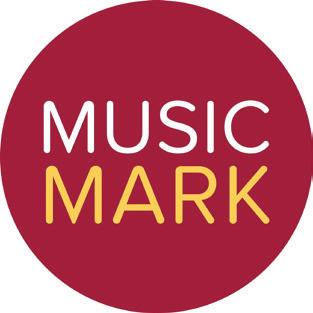
Everything you need to make and justify instrument purchasing decisions under the Capital Grant
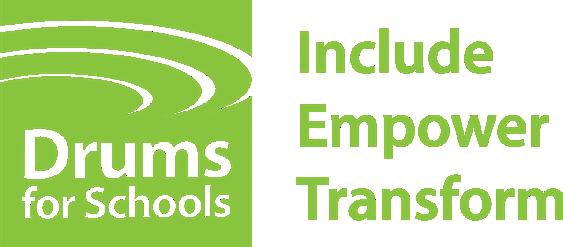
Drums for Schools are specialist suppliers of inclusive musical instruments for schools
Founded in 2006 by classically trained musician Andy Gwatkin, Drums for Schools is a small family business based in Nottinghamshire. We manufacture and supply inclusive musical instruments and music sets, all specially designed and made for the Education sector.

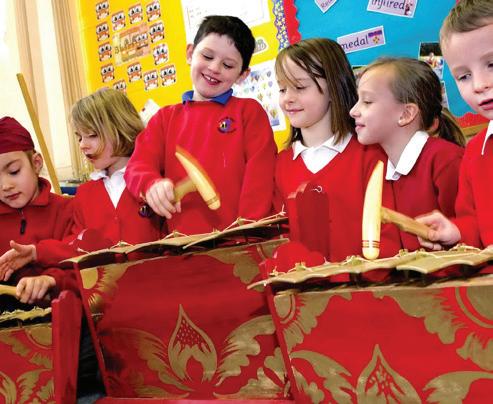
What we provide:
• Bulk supply of high quality instrument sets, instruments and instrument storage cases.
• Highly competitive prices.
• Very long instrument lifetimes, thanks to the high quality materials and build quality.
• Excellent product warranties and support.
• Free teaching resources, which include Schemes of Work, Teaching Guides, Video and Audio support.
Our founding Director’s first hand experience of African Drumming and Indonesian Gamelan convinced him that these and other world music traditions allow anyone to learn genuine musicianship, playing skills and a range of social and emotional skills quickly and enjoyably. Realising also that the styles appealed to the 90% of pupils who aren’t interested in classical music, he focussed the company on making these traditions and instruments available to schools.
For nearly 20 years, our mission has been to make high quality, highly inclusive musical instruments for the classroom, and to develop the teaching resources to help schools make effective use of them. We have collaborated closely with education experts, teachers and instrument makers to ensure that our instruments and resources are accessible, easy to learn, and that they fit with the realities of the classroom.
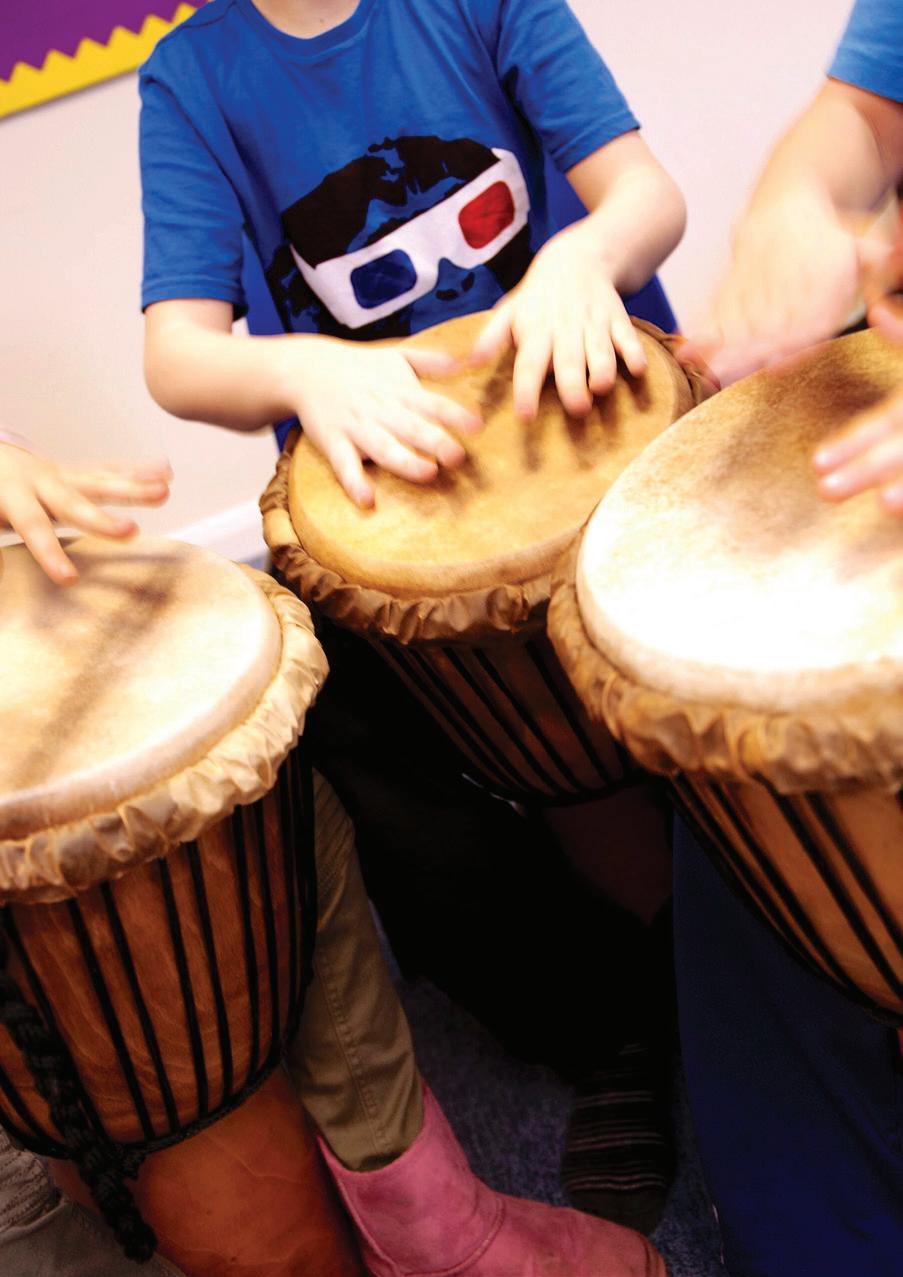
For all orders made using the Capital Grant, we can provide:
“Drums for Schools has an impressive and unique product range that has obviously been developed in association with schools and teachers to provide music educators with the best in equipment and resources to deliver a diverse music curriculum.”
• Highly competitive pricing.
• Payment plans to match the schedule of funding payments across 2024-2026.
• Quotes provided as standard with all orders under £12K.
• Flexibility to keep invoices under £12K and avoid the need to engage in a tendering process.
• Flexible bulk purchases bespoke to your organisation’s de minimis limits, ensuring that you meet the capitalisation requirements.
• Expert advice and support, including access to a free research project, to demonstrate how the instruments can meet your local needs.
• Detailed information on how each of our products meets the needs of SEND pupils.
• All the information you need to justify your purchasing decision including: cost, quality, numbers, lifespan, warranties/ guarantees, and maintenance/storage.

- Head, Regional Music Service
We appreciated the concern you showed for our desire to have the drums ASAP, and the substitutions you made. I can’t fault your customer care! One very satisfied customer!”
- Music Lead, Regional Music Service
We could not fault any aspect of our interaction with you, from ordering to delivery. Everything was great and correspondence really prompt with any queries.”
- Regional Music Service
These sets appeal to pupils of all ages (from KS1), backgrounds and abilities. The style is new to most children and so it’s a level playing field and disadvantaged kids have a chance to shine. Djembes are quick to set up and easy to play, so the whole class can be making a good sound and playing together from the very first lesson. SEND note: Djembe stands and belts are available.
All sets include free comprehensive teaching resourcesSchemes of Work, Teaching Guides, Audio and Video - suitable for instrumental teachers, music teachers or class teachers. All djembes supplied under the Capital Grant will include free protective Drum Hats.
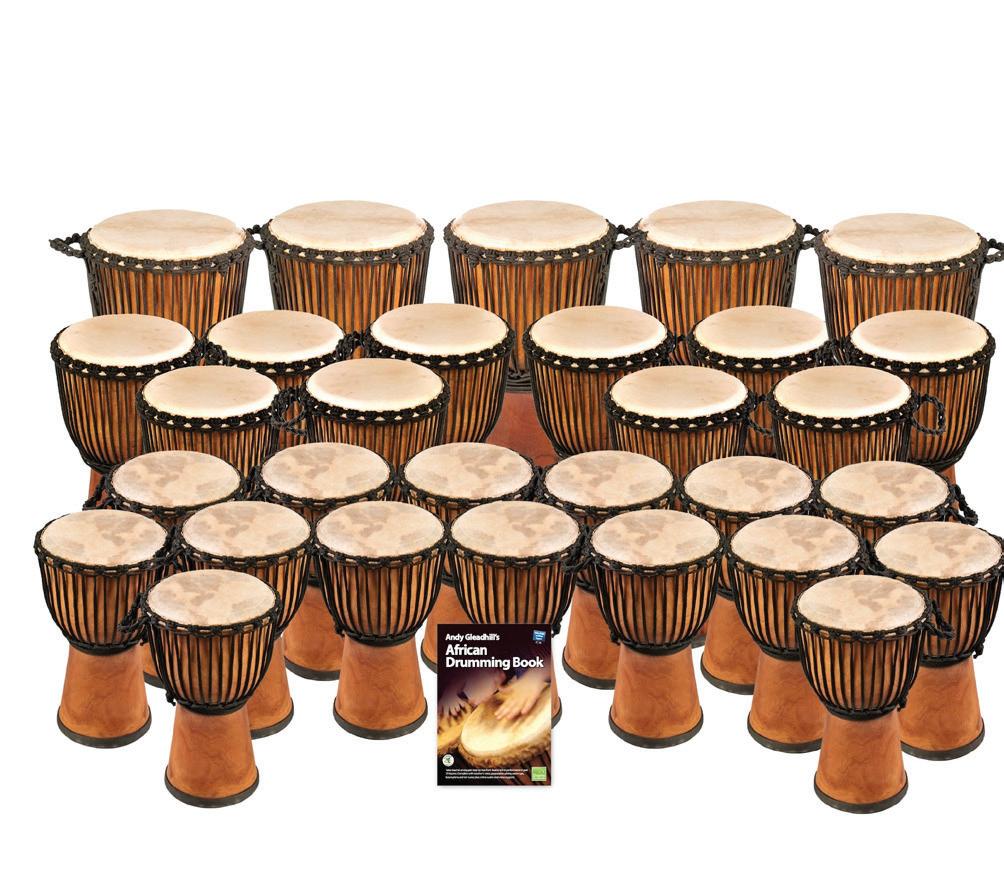


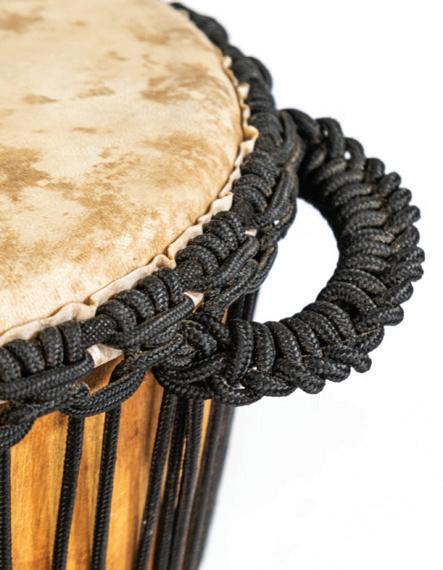
Drums for Schools djembes are made by hand using traditional techniques and high quality materials to give an authentic playing experience. Mahogany shells, sanded inside and out to give a smooth finish, natural goatskin heads, double-knotted stringing.
Traditional wooden djembes are a superior long-term investment compared to lower priced PVC pre-tuned instruments and they also give a superior musical and cultural experience. PVC djembes can be a good choice for school purchases, where budgets are particularly tight.
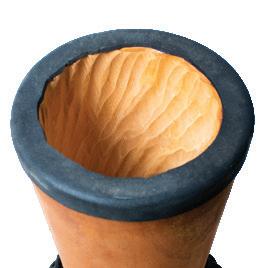
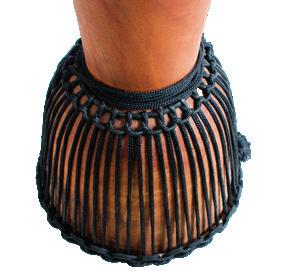
Djembes should be kept dry and the playing heads should be protected when not in use. All djembes supplied under the Capital Grant will include free protective Drum Hats. Please also see our range of innovative storage cases, designed for storing and moving large numbers of djembes.
Djembe pitch may vary depending on humidity and temperature and low pitches can be increased by drying/heating or, where significant increases are need, by traditional “Mali Weave” tuning. This technique is easy to learn and most djembes can be re-tuned this way in a matter of minutes.
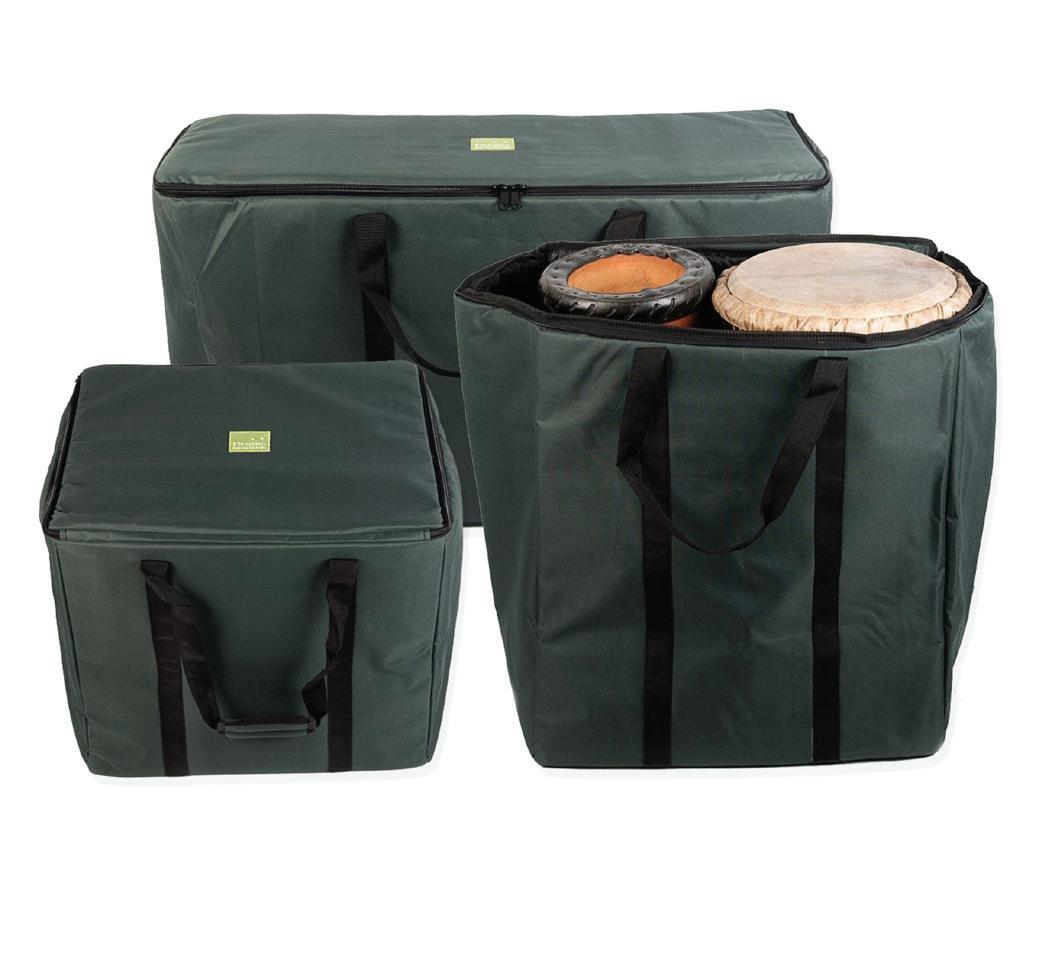
These sets appeal to pupils of all ages (best from KS2), backgrounds and abilities. Samba rhythms are completely new to most children and so the style presents a level playing field and disadvantaged kids have a chance to shine. The authentic Brazilian instruments are quick to set up and easy to play, so the whole class can be making a good sound and playing together from the very first lesson. SEND note: the larger drums have slings and are traditionally played with beaters, but can be played with the hands; percussion instruments require varying degrees of holding and coordination skills.
All sets include free comprehensive teaching resources - Schemes of Work, Teaching Guides, Audio and Video - suitable for instrumental teachers, music teachers or class teachers.


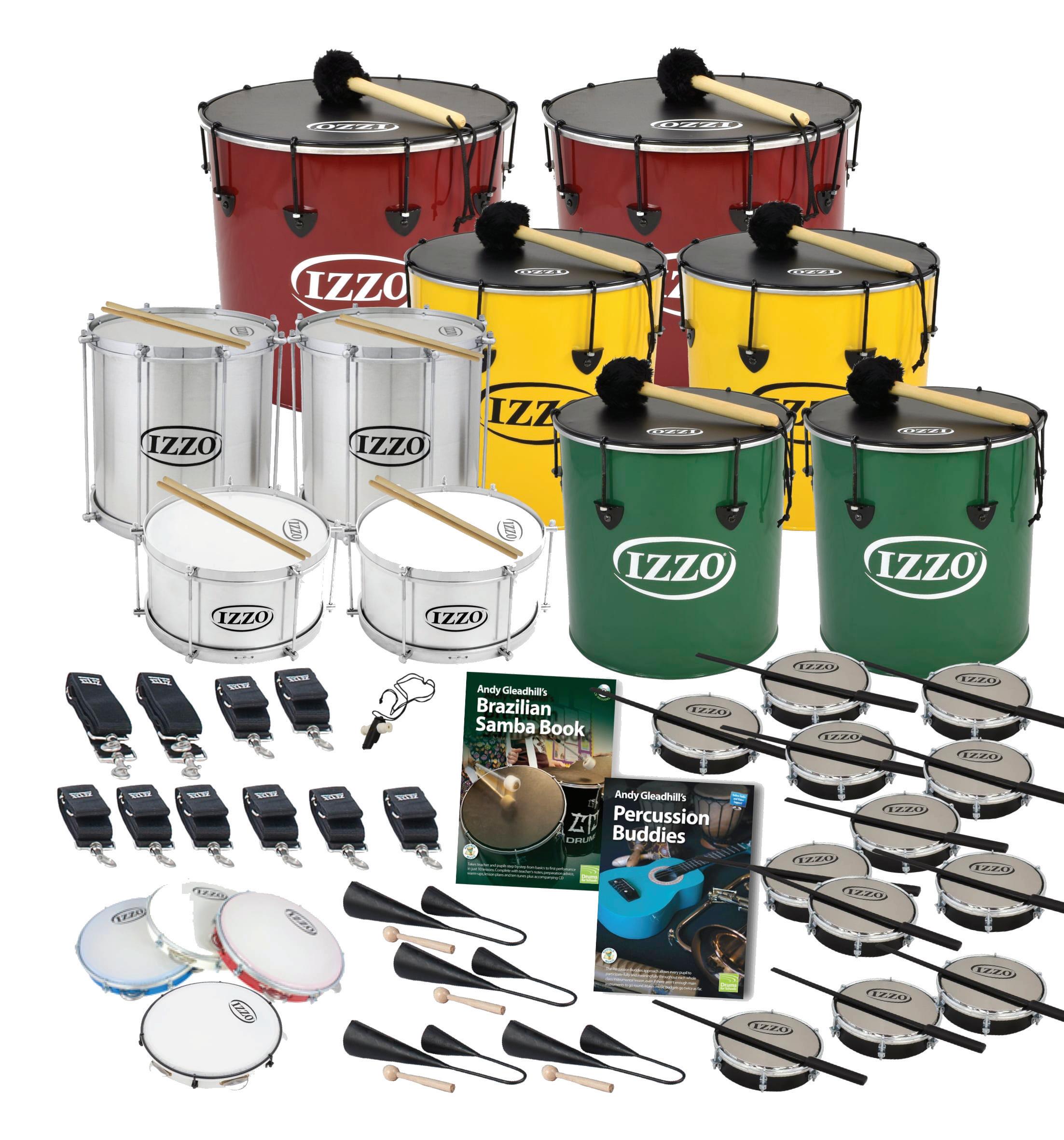
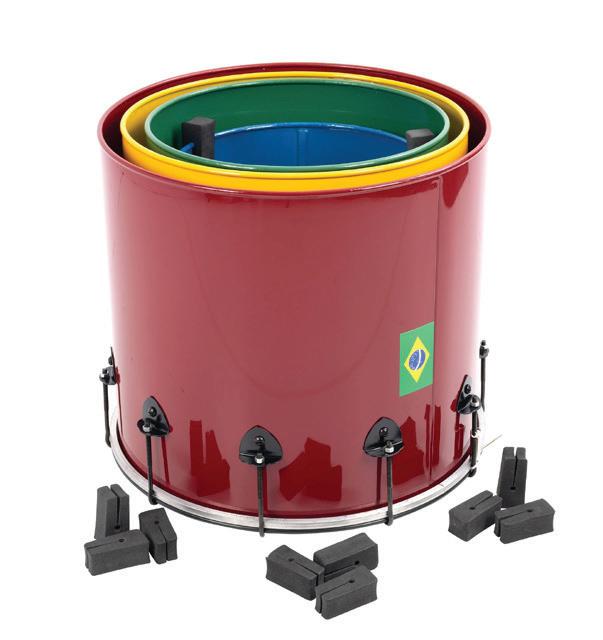
Drums for Schools samba instruments are made by Izzo, one of the longest established Brazilian samba manufacturers, and give an authentic playing experience. The bigger drums have aluminium shells and nylon or napa playing heads. Beaters and accessories are Drums for Schools own brand and are high quality and excellent value for money. Standard samba sets include nesting surdo drums and so they’re a good choice where storage is limited, or if the drums are going to be moved around regularly.
Economy sets include double-ended surdo drums and are a good choice where budget is tight, and where storage space is not an issue.
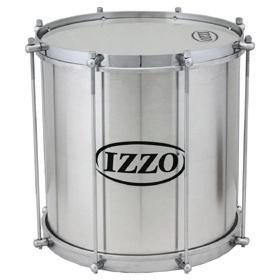
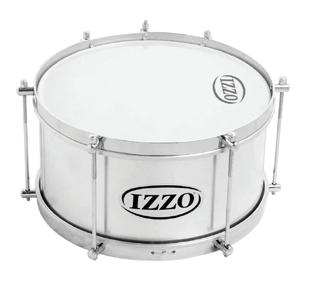
Samba drums use standard international sizes of playing head (same as for drum kits) and these are quick, easy and inexpensive to replace or tune using the small spanner provided with each drum.
It’s good practice to wipe the kit down after sessions, and to do a quick finger-tightness check of the tuning nuts. Samba kit should be kept dry and the playing heads should be protected when not in use. Please see our range of innovative storage cases, designed for storing and moving large numbers of samba drums.
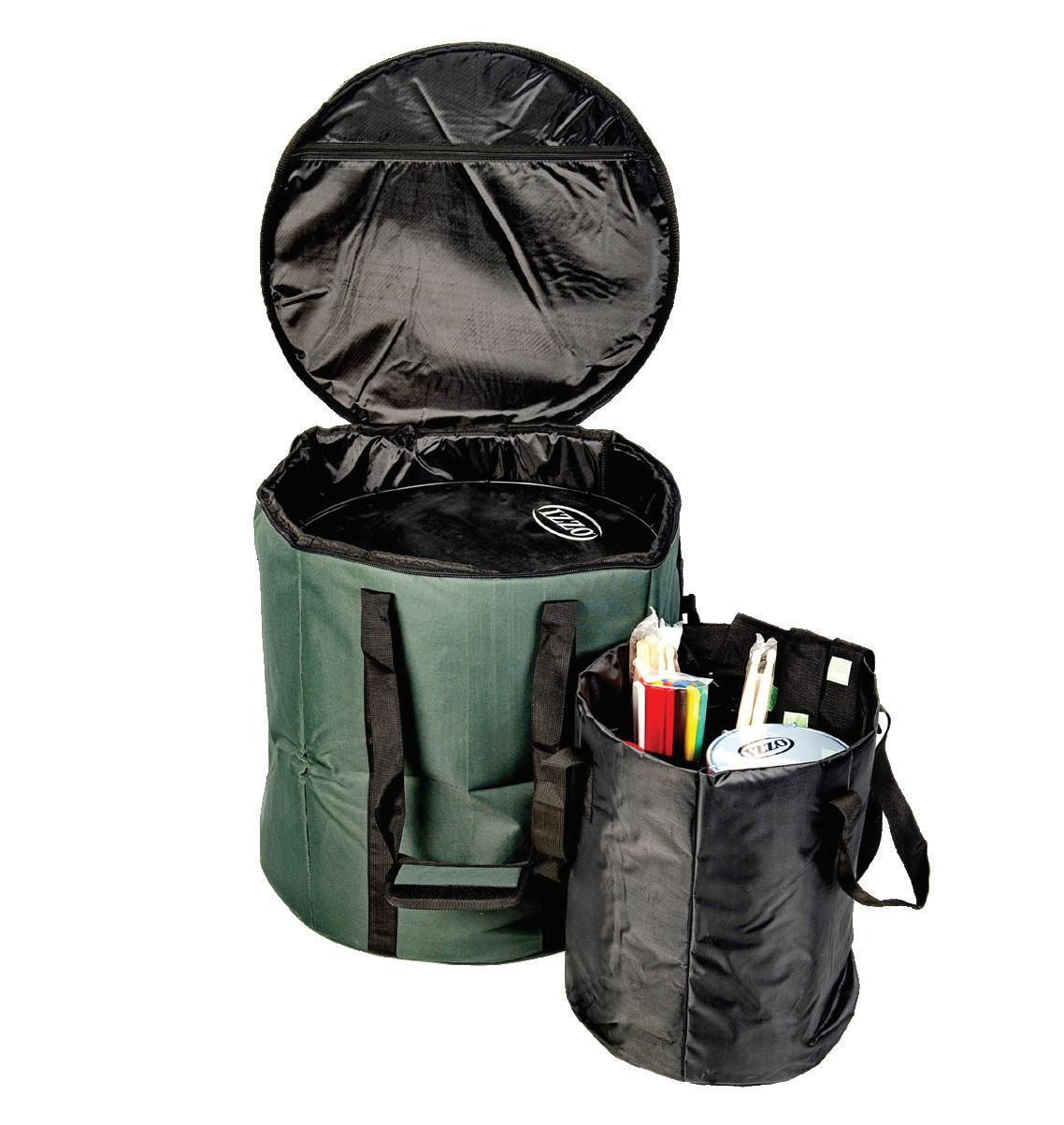
Steel Pan Class Sets - very popular, inclusive and culturally diverse
The Caribbean steel pan style is familiar from carnivals and it’s very popular in the classroom with pupils of all ages, backgrounds and abilities. The one octave Jumbie Jam pans produce a really authentic pan sound and are quick to set up and easy to play, so the whole class can be making a good sound and playing together from the very first lesson. Desktop and floor-standing versions are available.
The full size pans are relatively expensive but are an excellent long term investment and provide progression and a range of performance and outreach possibilities. They also lend depth to Jumbie Jam ensembles.
Jumbie Jam sets include free comprehensive teaching resourcesSchemes of Work, Teaching Guides, Audio and Video - suitable for instrumental teachers, music teachers or class teachers.
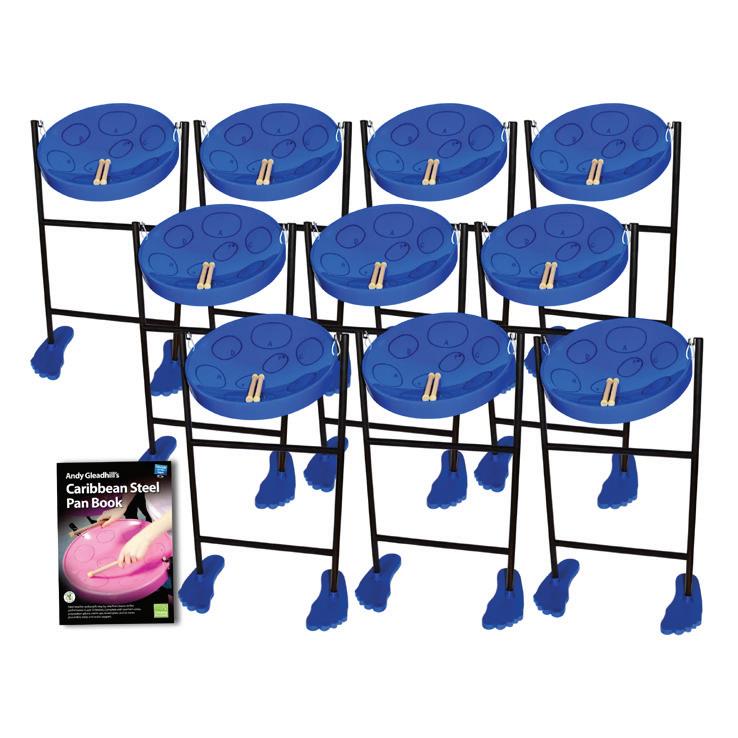




The Jumbie Jams are made by Panyard in the USA, and provide a completely authentic playing experience with very accurate intonation. Each Jumbie comes with its own stand and appropriate mallets.
The full size pans are made by and specially imported from Trinipans, a long-established Trinidadian pan maker. They’re a top quality build and have a high quality chrome finish, giving a bright, full tone. Each pan comes with its own stand and appropriate mallets.
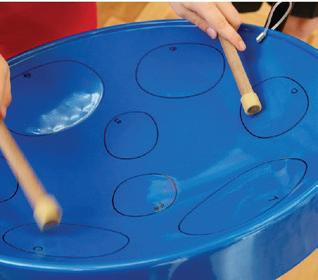

It’s important to avoid knocking or denting the pans, as doing so can affect the tuning. We recommend storing the pans in protective cases when not in use, or when moving them around.
Please see our range of innovative storage cases, designed for storing and moving large numbers of Jumbie Jams and full size steel pans.

Gamelan Class Sets - introducing a totally different sound-world and culture
Indonesian Gamelan introduces children to a totally different soundworld and a completely new culture. It really does broaden musical and cultural horizons and it’s great for all age groups from KS1 to KS5 and for children from all backgrounds. The instruments are easy to play and so the main focus can be on ensemble playing. Gamelan is particularly good for developing teamwork and social skills, as well as general musicianship.
All gamelan sets include free comprehensive teaching resourcesSchemes of Work, Teaching Guides, Audio and Video - suitable for instrumental teachers, music teachers or class teachers.


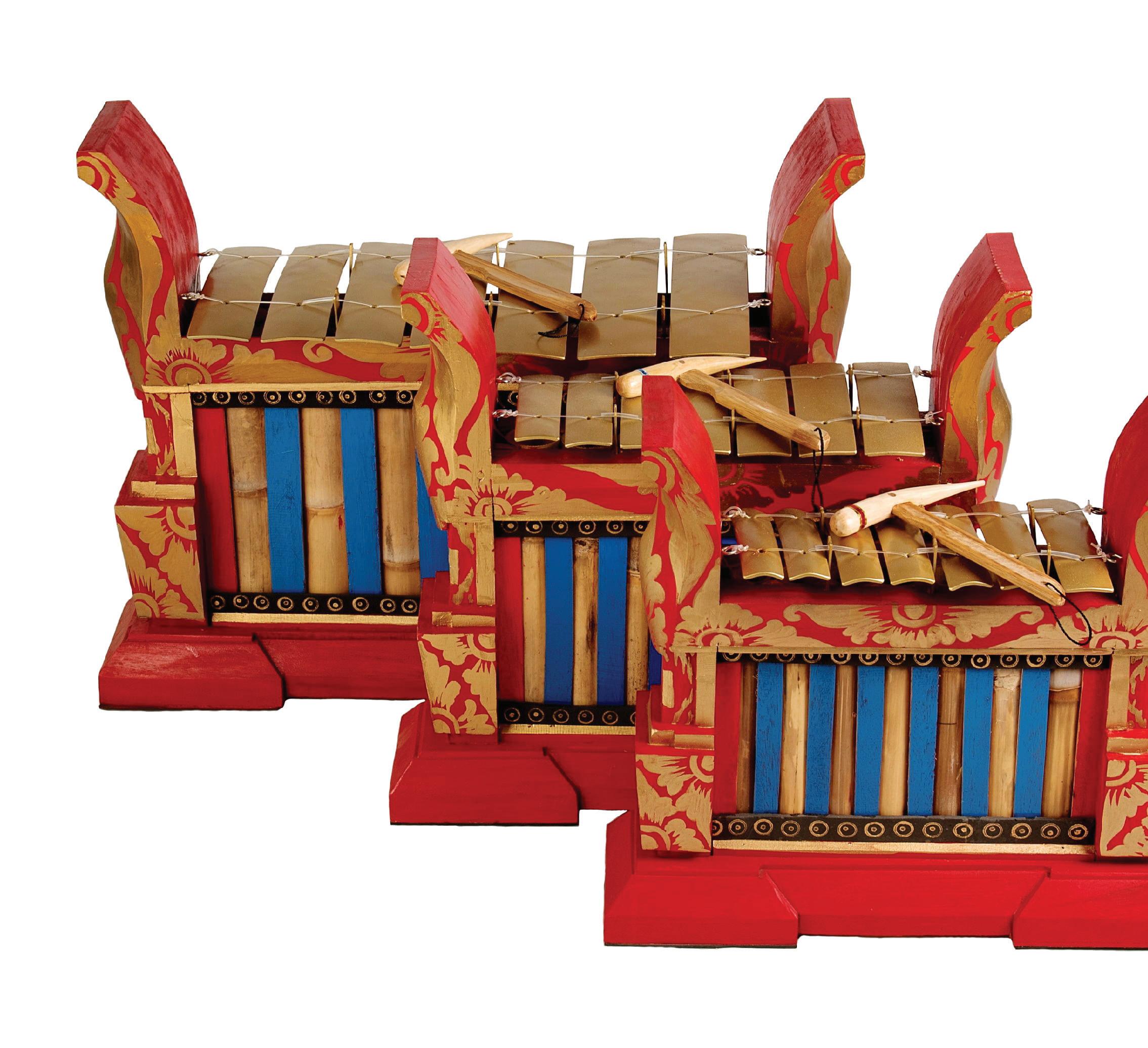


Drums for Schools gamelan instruments are made by Balinese gamelan makers, using traditional methods and materials. The same makers have been making gamelan for generations and ours are the same instruments that are used in villages and schools all over Bali, though with a higher quality of finishing to make them suitable for the UK classroom. Drums for Schools gamelan instruments provide a completely authentic playing experience for the children and make for fabulous end of term performances.
Premium and Standard gamelan have jackfruit wood casings and solid steel keys; Budget gamelan have multiply casings and thinner steel keys, but all have authentic Balinese tuning (Gong Kebyar Pelog Selisir scale) and excellent sound quality.


Gamelan instruments should be kept dry and in reasonably constant humidity and weights should not be put on the keys or the nylon stringing may break.
Please see our range of innovative storage cases, designed for safely storing and moving gamelan instruments.

Taiko is a brilliant and popular style for KS2 upwards. It gives everyone an intensive musical and physical workout and develops a wide range of personal skills, not least focus, teamwork, self-expression, selfdiscipline and self-confidence. Taiko adds a very physical dimension to music-making and it’s a very rounded experience for any child. And end of term performances can be spectacular and memorable for players and audience alike.
All Taiko sets include free teaching resources - Teaching Guides, Video - suitable for instrumental teachers, music teachers or class teachers.
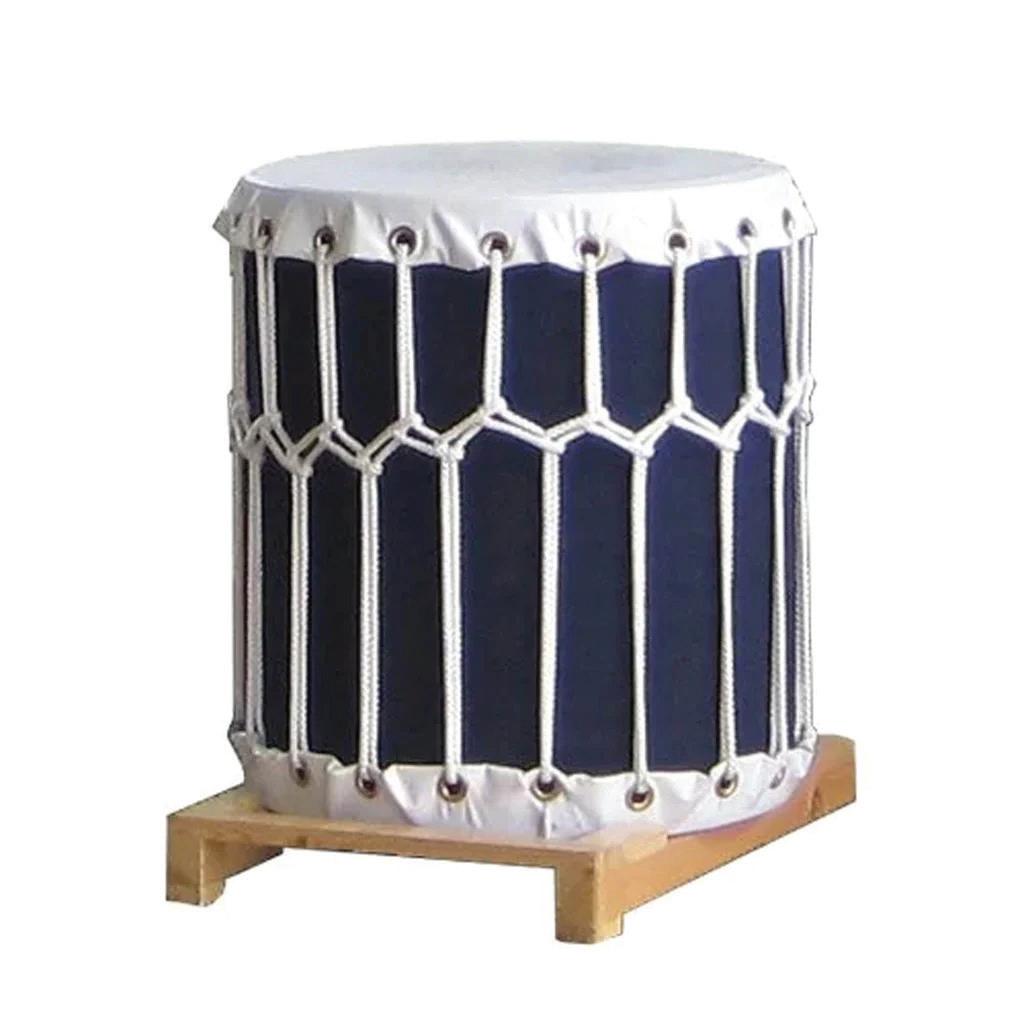

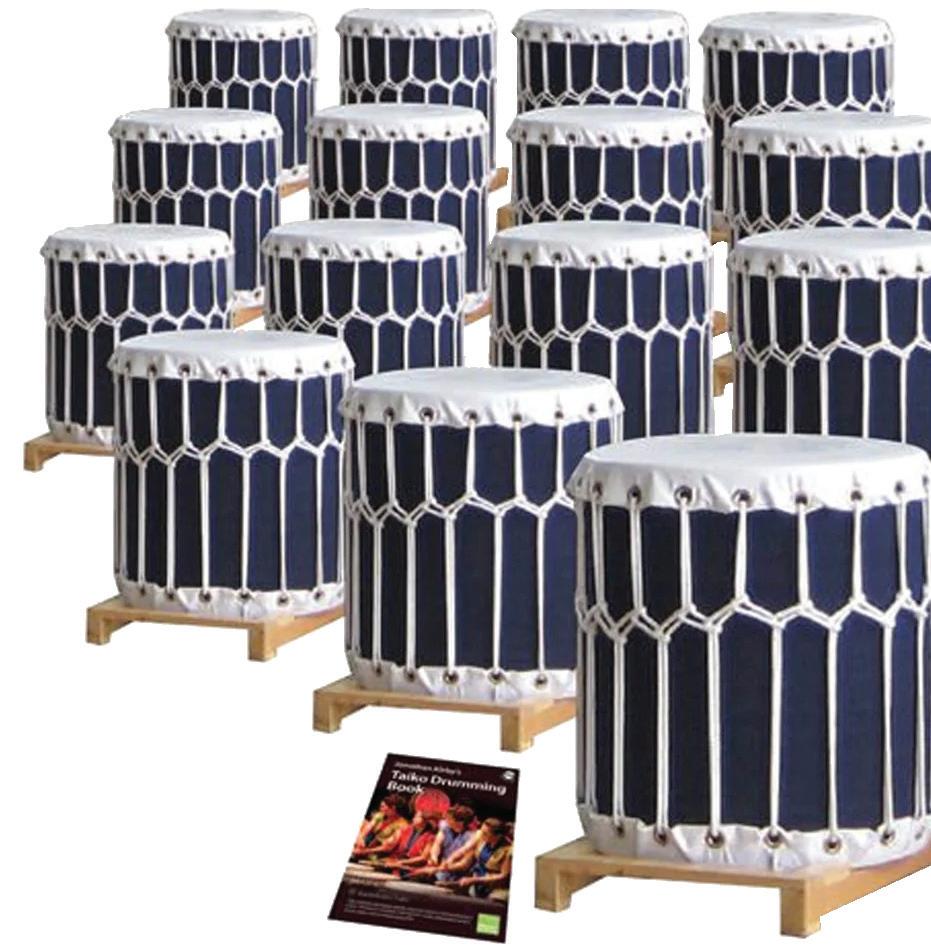

Drums for Schools are exclusive UK distributors for Kagemusha’s Taiko practice “pipe” drums. The drums are virtually indestructible and can be used in and out of doors. They have been tried and tested for many years in schools and music services all over the country and are a genuinely long term asset.
Bachi (beaters), drum stands and carry bags are Drums for Schools own brand and are high quality and excellent value for money.
Kagemusha practice drums need very little maintenance, just wiping down after use and occasional tensioning of the heads. The drum shells are extremely tough and will withstand all weathers, but do be careful of the playing heads and keep very hard and sharp objects well away.
We recommend storing the drums in protective cases, or at least covering the heads when not in use. Drums for Schools make a special heavy duty storage/carry bag for the Kagemusha practice drum and can also supply replacement

These percussion sets are suitable for children from KS1 upwards, and for all backgrounds and abilities. The great attraction of World Percussion for schools is the low cost of the instruments. These sets enable whole classes to be taught musicianship and teamworking, allow schools to cover the music syllabus and make for easy progression to any other musical style.
SEND note: percussion instruments require varying degrees of holding and coordination skills and each set allows for a range of abilities.
All sets include free comprehensive teaching resources - Teaching Guides, Audio and Video - suitable for instrumental teachers, music teachers or class teachers.


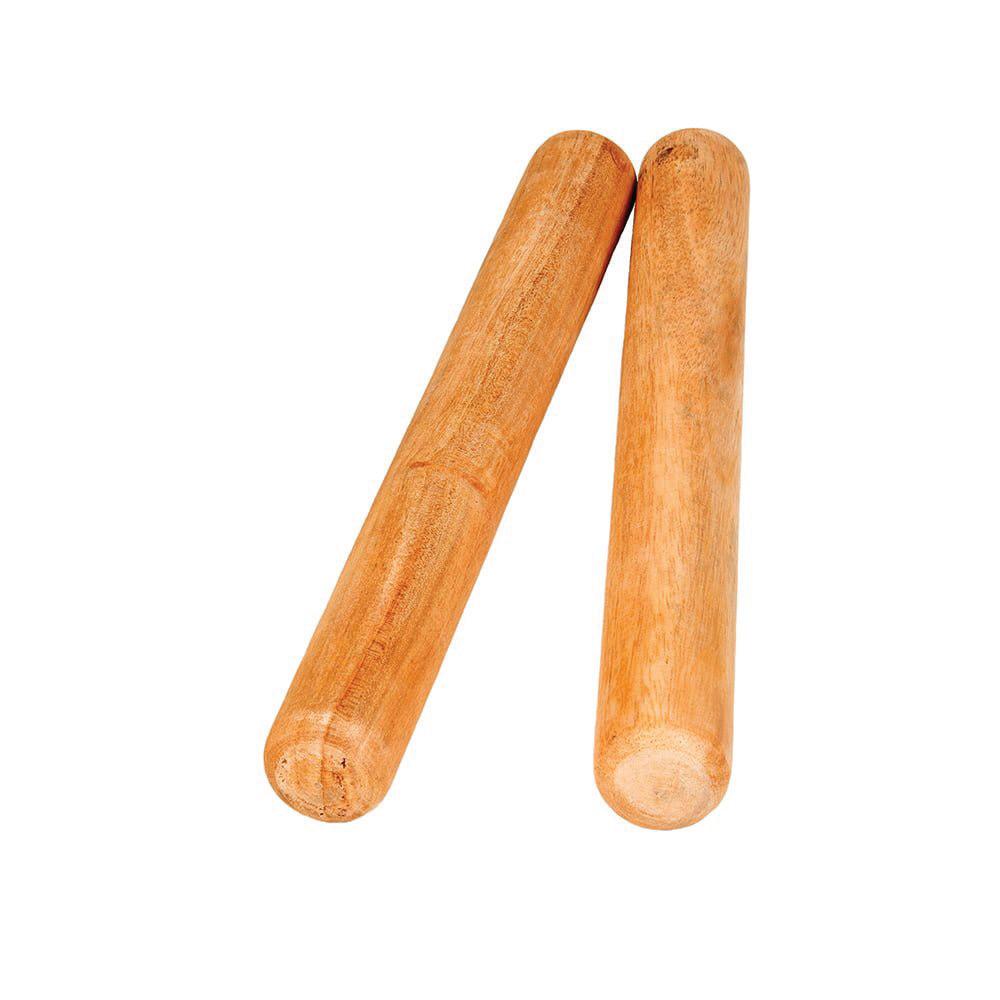





Drums for Schools world percussion instruments are made from traditional, natural materials using traditional techniques. They have been specially adapted by us for use in the classroom and are high quality and excellent value for money.
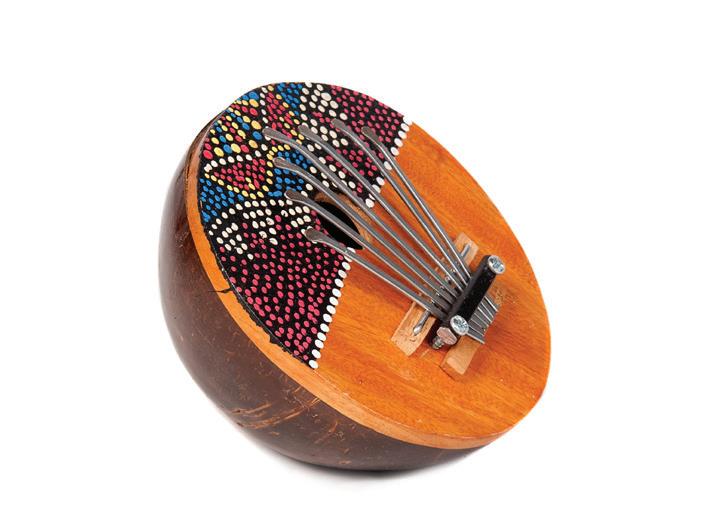


World percussion instruments generally don’t require any maintenance and can be played “out of the box”. We recommend wiping them down after use and storing them in the protective cases provided.
In addition to the instruments in the World Music Class sets, Drums for Schools have a wide range of other hand made musical instruments, from different world musical traditions, all made from sustainable, natural materials.
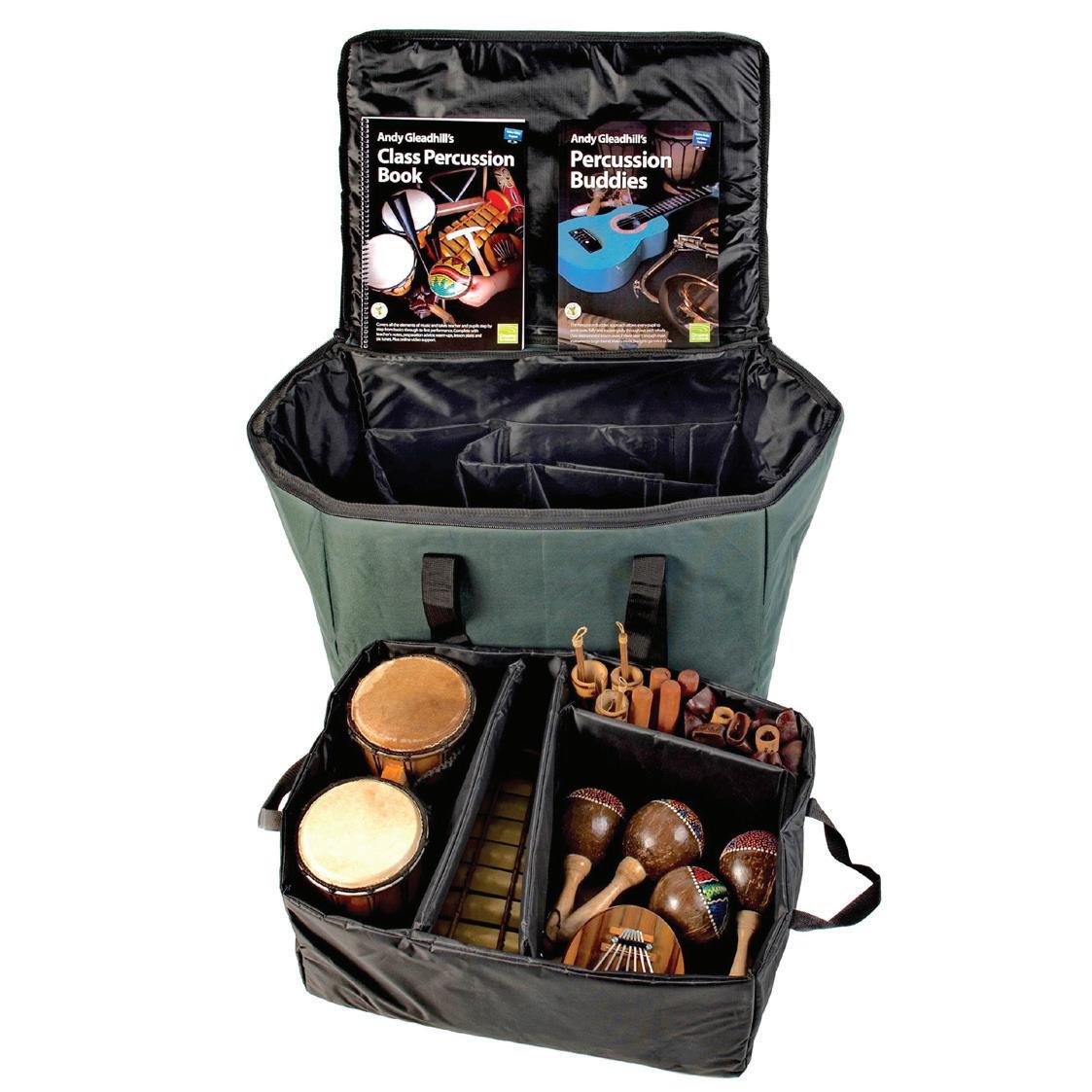
As well as ready-to-play Class Sets, inclusive musical instruments and innovative instrument storage solutions, Drums for Schools provide:
“Include, Empower, Transform” sums up our whole approach to music-making. Our musical instruments are naturally inclusive and tactile, and will support the development of any child or adult. They are robust, low-cost, and suitable for use in the home, as well as in SEND settings.
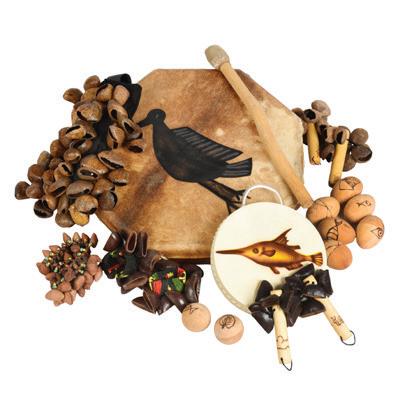

Each Class Set includes enough resources for 5-6 terms of learning, and by adding further styles you’ll have enough material for a 5 year progression. There are opportunities for all three types of musical progression: linear, depth, and breadth.

Whether you’re a confident musician or a complete beginner, our “Sound Children” Early Years Music Sets give you everything you need to enjoy leading music-making sessions with your children, and to support their development across all areas of learning.

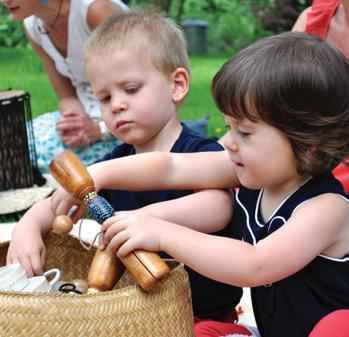
Our resources include Schemes of Work, Teaching Guides, Videos and Audio tracks and give instrumental teachers, music teachers and non-specialist class teachers everything they need to lead mixed ability classes from zero to first performance in just a term of lessons.
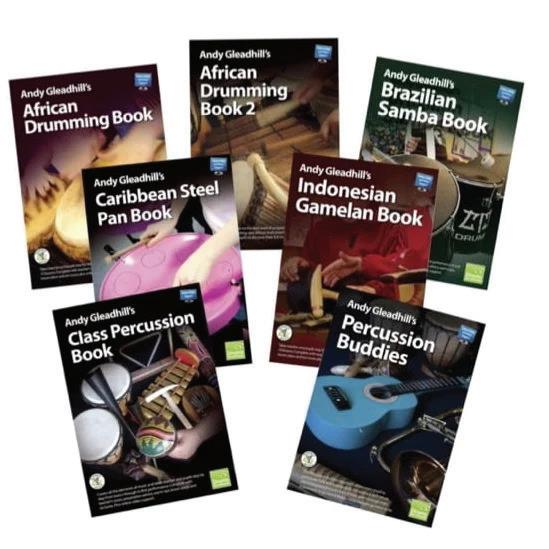

Our music sets and schemes of work can help your schools meet Ofsted’s Recommendations for Music and their Features of High Quality Music Education.

Music Sets and Schemes of Work can help your schools meet the National Curriculum for Music Requirements for Primary and Secondary Schools in England.




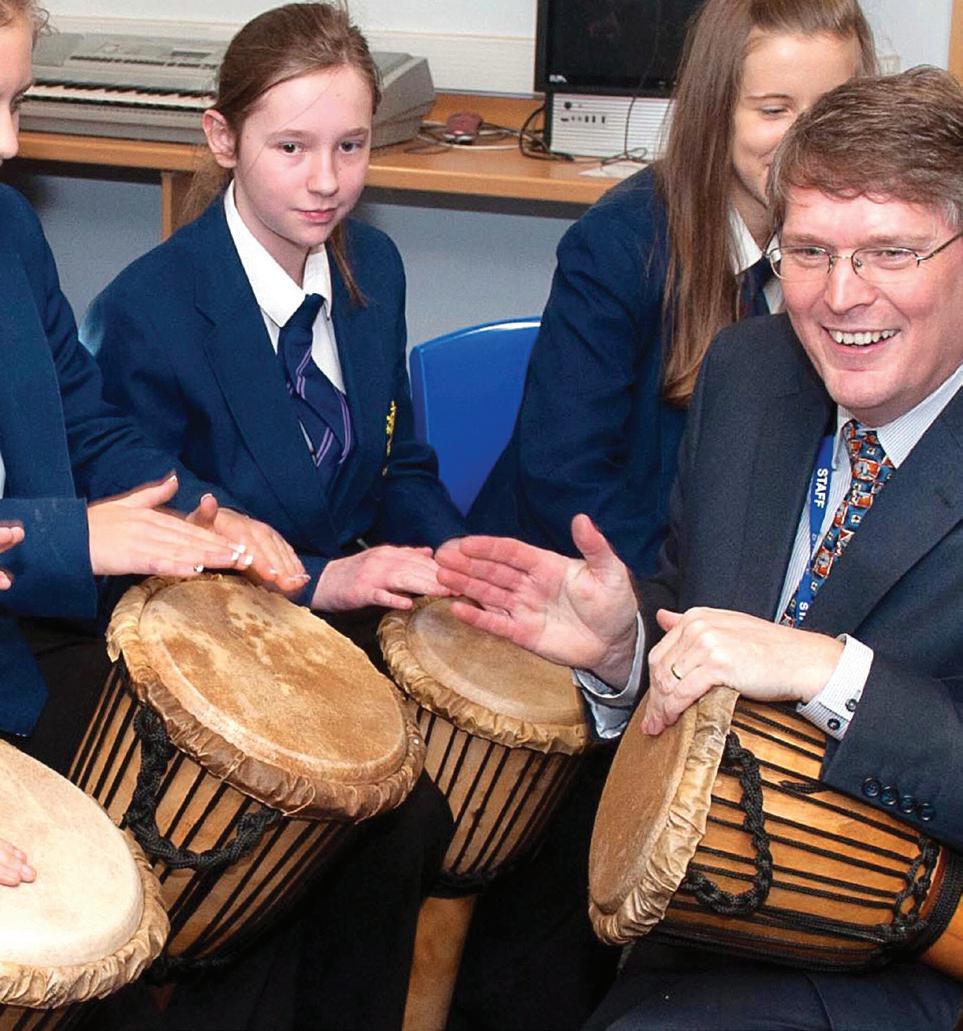
Enquiries:

Andy Gwatkin
Director
andy@drumsforschools.co.uk
+62 878 617 303 44

Hilary Harris
UK Operations
hilary@drumsforschools.co.uk
+44 07770 275182



Drums for Schools Ltd
Head Office: 21 Shaftesbury Avenue, Burton Joyce NG14 5GL
Warehouse: Buffer Storage, Trentside, Gunthorpe NG14 7FB
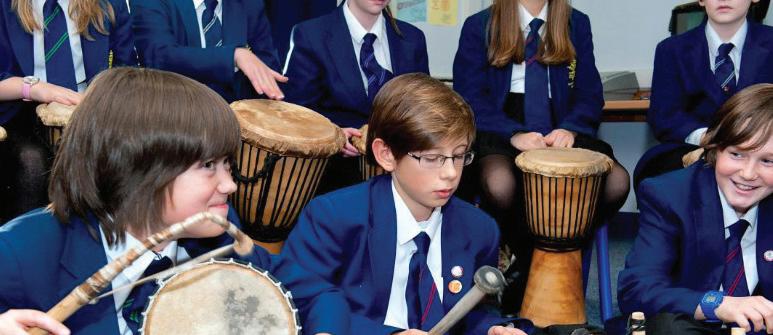
You can start with any musical style, and then move on to any other style.
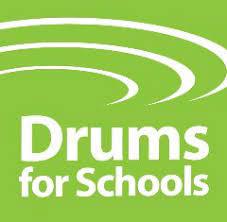
Drums for Schools class teaching sets can form the backbone of your progression strategy. Each set includes enough resources for 5-6 terms of learning, and by adding several different styles you’ll have enough material for a 5 year progression.
The instruments and teaching resources in each set provide opportunities for all three types of musical progression: linear, depth and breadth. An incremental approach allows pupils to gradually take on more complex tasks, deepen their technical and musical skill, and transfer these skills across a broad range of musical styles.
• Great starting style, popular with all age groups
• Highly inclusive and accessible
• Durable instruments, quick and easy lesson set-up
• ££ Low cost - from £25 per player
• Scope for 5+ years progression
• Inclusive and accessible starting style for all age groups
• Mixes well with other musical styles
• Builds musicianship and teamworking skills
• £ Very low cost - from £10 per player
• Easy progression to any other musical style
• For KS2 upwards and popular with everyone
• An intensive musical and physical workout
• Great for teamwork and self-confidence
• ££££ Higher cost - from £150 per player

• Spectacular performance experience for players and audience
• Great for KS2-5 parades and summer
• Highly rhythmic and exciting
• Interacting parts develop teamworking
• ££ Low cost - from £30 per player
• Progression to other styles and classical
• Very popular style with all age groups
• Mixes with tuned percussion, pop and classical
• Covers melody as well as rhythm
• £££ Medium cost - from £60 per player
• Western Scale, so easy progression to classical and to full size pans
• Great for all age groups from KS1 to KS5
• Very inclusive and develops teamwork
• Broadens musical and cultural horizons
• £££ Medium cost - from £60 per player
• A totally different sound-world
KS1 to KS5+ KS2 to KS5+ KS1 to KS5+ KS2 to KS5+ KS1 to KS5+ KS1 to KS5+
Help us to help teachers!
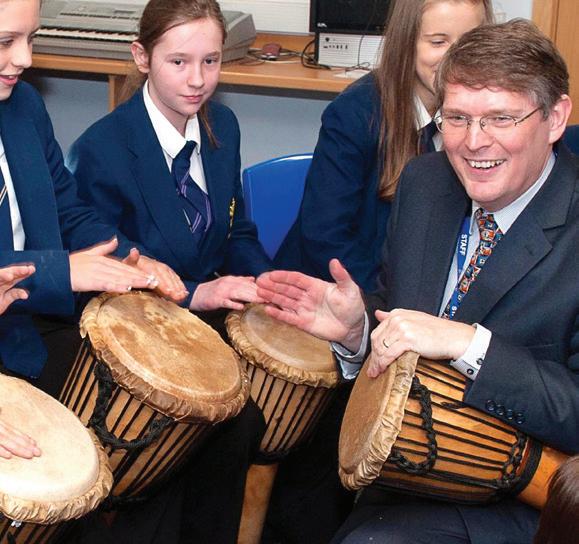


Here at Drums for Schools we are passionate about the power of music to unlock potential in both students and teachers.
We know that non-specialist teachers often struggle with lack of confidence and feelings of inadequacy when it comes to teaching music. This may be due to lack of a musical background or they may just feel that they are ‘unmusical’, but this lack of confidence can significantly reduce the effectiveness of their teaching. We’re on a mission to change this, and we need your help.
We are looking for a number of music hubs to take part in our research project during the Summer Term of 2024. These hubs will identify schools in their area where music is being taught by non-specialists to be involved in this research. While the majority of these are likely to be primary schools, we would be particularly interested in involving secondary schools where music is being taught partially or fully by non-specialists at KS3 as well.
Schools will be required to use the Drums for Schools instruments and teaching resources regularly over the course of the term, either as part of their curriculum work, or as an extra-curricular activity. The teachers involved will complete a short survey at the start of the project, and keep reflective notes during it to assist them in completing another survey at the end of the project. They will also be asked to collect a small amount of (anonymised) pupil feedback.
Participating in this project will allow you to reinforce existing partnerships with schools, and perhaps reach schools who are yet to engage with you due to budgetary constraints or music being a non-priority subject. It can also contribute towards your inclusion strategy, both in terms of adding cultural diversity to your offer, and in supporting all children (and teachers!) to make progress with music.
Due to the nature of the project, which includes training materials and opportunities for self-reflection, hubs can also count their involvement as an innovative approach to the provision of teacher CPD. The teaching materials are mapped against the National Curriculum and Model Music Curriculum, so participation in the project can be counted towards engagement numbers for the Model Music Curriculum. The project also represents an opportunity to get feedback from schools on the instruments provided in order to compile evidence of need, quality, and value for money ahead of any purchasing decisions for the capital grant funding.
We will loan each school free of charge a class set of one of the following:
Each class set will come with all the teaching resources required, including audio and video support resources, teacher books, and lesson plans. There will also be a dedicated contact person available from Drums for Schools who can provide advice and support where necessary via email, telephone or Zoom.
Schools and the hub will have the option to purchase the instruments at the end of the project at a discounted price, should they wish to continue using them long term.
We hope that this research project will help us show that taking an immersive approach to the musical traditions outlined above improves teacher and pupil confidence and skill in making music, and helps them identify as ‘more musical.’ We also want to find out if there are additional materials, resources, and support approaches that teachers would find useful to make the teaching of these musical styles even easier and more enjoyable.
The findings from this research project will be collated into a report, shared with all participants and published on our website and through relevant music education publications. They will also be used to further develop our resources and support offer where relevant.
Drums for Schools have commissioned Music Education Solutions® as their independent researchers for this project. You can find out more about their research work here:
https://musiceducationsolutions.co.uk/research-development/

Please scan the QR code to express your interest in participating in this research.
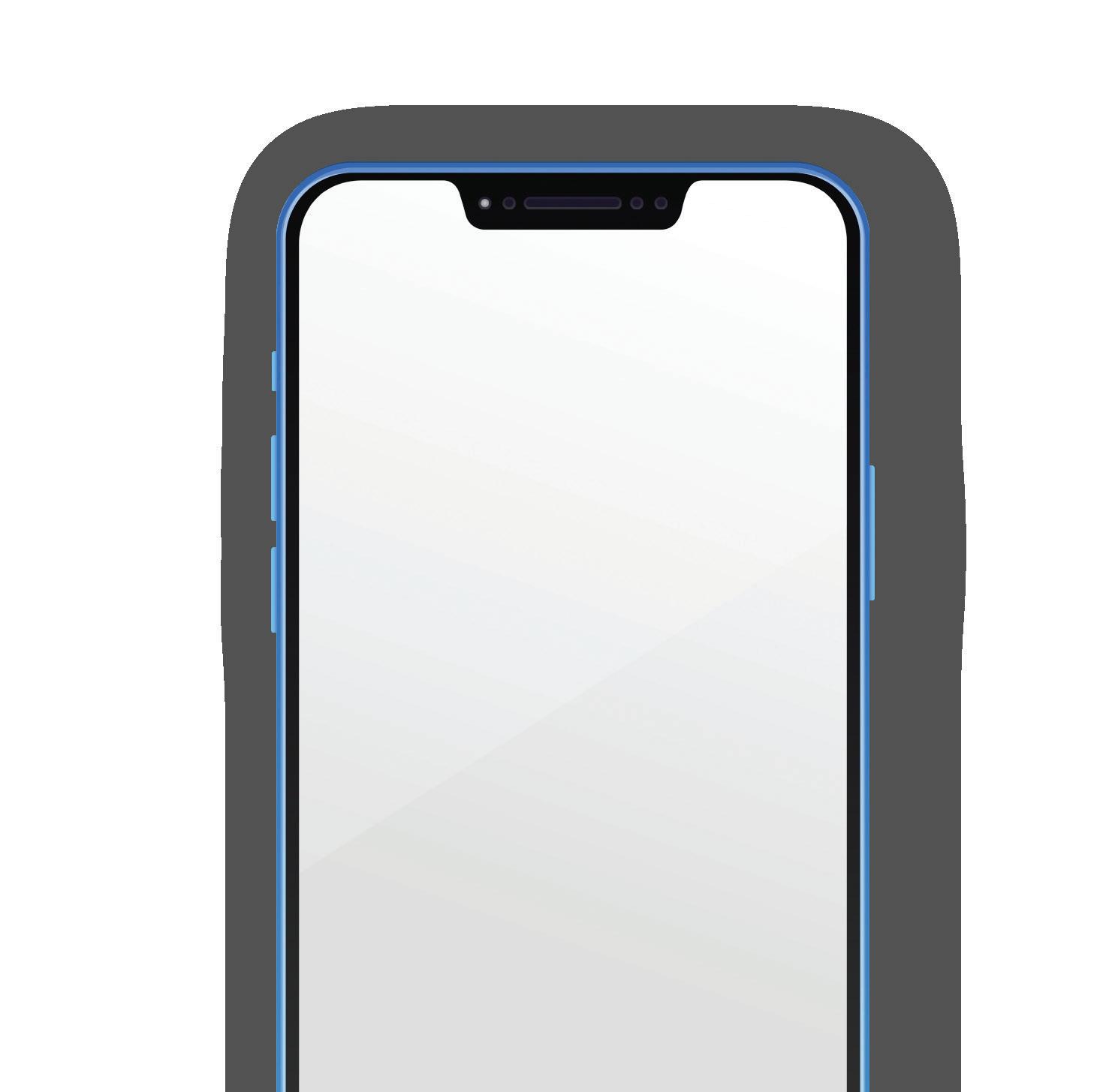

Curriculum content that might reasonably be mastered in the time available, remembering that sometimes less is more
Plentiful opportunities for pupils to return to and consolidate their short-term learning
Repetition of key curricular content with the gradual introduction of new ideas, methods and concepts
Curricular scope that includes enabling pupils to gradually develop control over the sound they are producing
Practice episodes to support the consolidation of procedural knowledge
The goal of automaticity in using the components set out in the curriculum, such as reading the treble clef or chord symbols
Large amounts of practice to enable pupils to develop reading fluency at the level set out in the curriculum
Learning of the concepts and terminology of musical elements through examples embedded within wider units of work, taking prior learning into account
Opportunities to develop knowledge of the components of composition that pertain to chosen school curriculums and support work towards stylistic composites
Extensive listening opportunities to help develop pupils’ expressive intentions
Tasks at a technical level appropriate for pupils to be able to realise their expressive intentions
Space for exploration, inconsistency and independence
Opportunities to gain knowledge of musical culture and repertoire, which is part of a broad education and a joy in and of itself
Realistic scope concerning this knowledge which, if it is to be meaningful and remembered, is unlikely to be vast
Clarity over the components which will form the basis for formative assessment
High levels of guidance for novices, remembering that pupils in every key stage are sometimes novices, with increasing freedom as pupils gain greater competence
Occasional outlying moments of powerful emotional impact, created deliberately through careful planning or through seizing the moment and running with it
Recognition that attention filters out most of what pupils perceive and that it should not be wasted on ephemera


Pupils, particularly at KS3, have enough curriculum time to develop their musical knowledge and skills incrementally
The curriculum identifies precise end points in performance, composition and listening work, and then sets out the knowledge and skills pupils need, step-by-step, to reach these end points
The curriculum builds, incrementally, pupils’ knowledge of the technical and constructive aspects of music
Teachers provide ongoing feedback to pupils that improves the quality of pupils’ music making both in terms of technique and expressive quality
Teachers routinely demonstrate to pupils what high-quality musical responses sound like, and the processes for achieving those outcomes
Schools should actively seek the support of local music hubs or other sources of expertise when developing and improving the curriculum
Schools should support subject leaders to develop a curriculum that deliberately and incrementally teaches all pupils to become more musical
Schools should continually develop teachers’ subject knowledge, including their musicianship skills and their understanding of what high-quality music making should sound like for pupils in the age group they teach; this approach should align with the choices set out in the school’s curriculum
Schools should make sure that all pupils can develop their musical talents and interests, by offering extra-curricular activities and instrumental and vocal lessons
African Drumming Brazilian Samba Caribbean Steel Pans Indonesian GamelanKS1
Use their voices expressively and creatively by singing songs and speaking chants and rhymes
Play tuned and untuned instruments musically
Listen with concentration and understanding to a range of high-quality live and recorded music
Experiment with, create, select and combine sounds using the interrelated dimensions of music
KS2
Play and perform in solo and ensemble contexts, using their voices and playing musical instruments with increasing accuracy, fluency, control and expression
Improvise and compose music for a range of purposes using the interrelated dimensions of music
Listen with attention to detail and recall sounds with increasing aural memory
Use and understand staff and other musical notations
Appreciate and understand a wide range of high-quality live and recorded music drawn from different traditions and from great composers and musicians
Develop an understanding of the history of music
KS3
Play and perform confidently in a range of solo and ensemble contexts using their voice, playing instruments musically, fluently and with accuracy and expression
Improvise and compose; and extend and develop musical ideas by drawing on a range of musical structures, styles, genres and traditions
Use staff and other relevant notations appropriately and accurately in a range of musical styles, genres and traditions
Identify and use the inter-related dimensions of music expressively and with increasing sophistication, including the use of tonalities, different types of scales and other musical devices
Listen with increasing discrimination to a wide range of music from great composers and musicians
Develop a deepening understanding of the music that they perform and to which they listen, and its history

Meets Requirement Partially Meets Requirement
African Drumming Brazilian Samba Caribbean Steel Pans Indonesian Gamelan African Drumming Brazilian Samba Caribbean Steel Pans Indonesian Gamelan African Drumming Brazilian Samba Caribbean Steel Pans Indonesian Gamelan